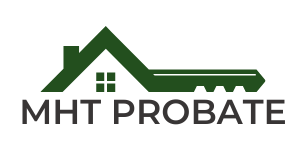Frequently Asked Questions
These FAQ are informational purposes only and do not constitute legal advice. Please consult an attorney if you have specific questions.
Probate is a legal process that transfers property and ownership after someone dies.
Yes, most commonly there are three types of probate.
- Informal Probate is an administrative proceeding processed by a Magistrate, rather than a judge, and is used when you have the will, the official death certificate, you know the identity and location of all parties involved,
and all the other pieces are in order.
- Formal Probate involve a judge and will require court hearings. Typically formal probate is required when information is missing or questionable.
- Voluntary Administration is a simplified process for an estate with few assets and no real estate.
No. Whether an estate has to be probated depends on how the decedent’s (the person who has died) property is titled (owned) when they die.
Generally, yes, the rule is that an estate has to be probated within 3 years of when the decedent died. However, there are some exceptions.
A Personal Representative, also known as Executor (male) or Executrix (female), plays a key role in collecting, managing, and transferring estate property to the devisees or heirs. A Personal Representative is appointed by the court and can either be an individual named in a valid Will or another person selected by the court.
Responsibilities include, but are not limited to:
• Applying for Probate
• Opening a bank account for the estate
• Taking inventory of assets and liabilities
• Liquifying assets (converting assets to cash) of the estate
• Notifying creditors
• Settling debts and taxes
• Distribution to heirs
• Closing the estate
In Massachusetts, a Personal Representative is required to pay creditors from the estate. Generally the Personal Representative is not personally liable unless they mismanaged the estate’s assets.
Every case is different. For Informal Probate, an order can be issued in as few as 7 days after the decedent’s death. Formal Probate can take several months to a year or more. Voluntary Administration can take just a few weeks.
In Plymouth County, the total fee required to file a formal petition is $405.00. The fee is broken down as follows: $375 for the filing of the formal petition including all required forms/documents, a $15.00 surcharge to assign a docket number, and a $15.00 citation fee. The filing fee of $405.00 includes the initial appointment bond, citation, and initial court issued Letters of Authority but does not include publication costs. Additional costs, including, but not limited to, attorney fees and miscellaneous charges, can bring the estimated cost to around 3%-5% of the total value of the estate. For example, if the total value of the estate is $100,000 you could potentially pay between $3,000 and $5,000 or more.
When a loved one passes away, you’ll have to decide whether you’ll need to file for probate. Things such as the existence of a will, ownership of real estate, the value of personal property, financial holdings and many other factors will help you decide if probate is necessary and, if so, which type of probate. This process can range in difficulty from relatively simple to exceptionally complex. My suggestion is always to speak with an attorney. If you would like a referral for an exceptional, compassionate attorney, don’t hesitate to contact me and I’d be happy to help.
Once you have decided on the type of probate and if an attorney is needed, you’ll have to start filling out forms. Here’s a quick list of some of the documents and forms you’ll need:
1. Petition for Formal Probate of Will/Adjudication of Intestacy/Appointment of PR (Form: MPC 160)
2. Surviving Spouse, Children, Heirs at Law (Form: MPC 162)
3. Devisees (Form: MPC 163) *Note: The term “devisees” refers to individuals or organizations named as beneficiaries in a will. An “heir” or “next-of-kin” is only a devisee if named in a will.*
4. Original Will, if available, if not, a copy or statement of Will contents
5. Certified Copy of Death Certificate, if available or affidavit
Here is a checklist from the State of Massachusetts for the forms you’ll need:
https://www.mass.gov/doc/checklist-for-formal-probate-mpc-967/download
It’s a bit confusing, but all the forms can be found on the Mass Probate and Family Courts website:
https://www.mass.gov/lists/probate-and-family-court-forms-for-wills-estates-and-trusts
Probate is typically handled in the County where the decedent lived or owned property.
In Plymouth County you can go to either the Plymouth or Brockton District Court Houses
Plymouth:
52 Obery Street
Plymouth, MA 02360
or
Brockton
215 Main Street
Brockton, MA 02303
While you can handle most probate cases with sufficient time and effort, I always suggest – at the very least – speaking with an attorney. It’s the same for any other legal process. Your best bet is always to consult the experts.
If you need a referral for an exceptional attorney, please contact us today and we’ll put you in good hands!
Proudly serving all of Massachusetts but specializing in the following Plymouth County cities and towns: Abington, Bridgewater, Brockton, Carver, Duxbury, East Bridgewater, Halifax, Hanover, Hanson, Hingham, Hull, Kingston, Lakeville, Marion, Marshfield, Mattapoisett, Middleborough, Norwell, Pembroke, Plymouth, Plympton, Rochester, Rockland, Scituate, Wareham, West Bridgewater, Whitman


